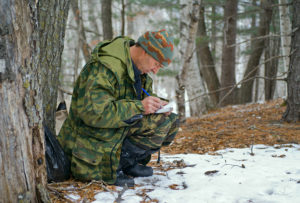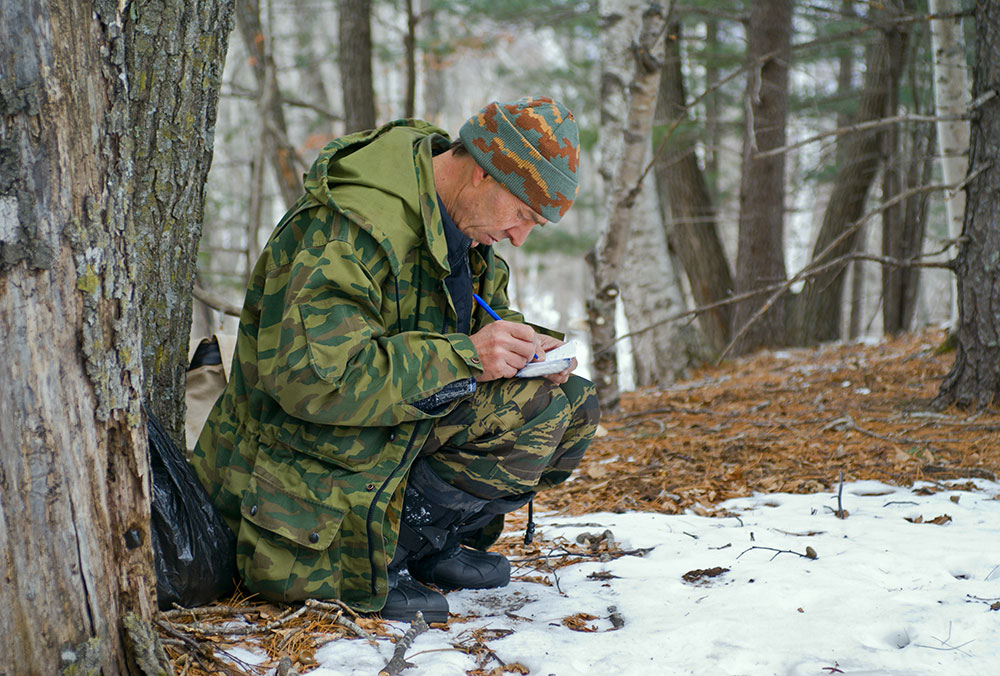Disclaimer: The information on our website is provided for general information purposes only. We make no representations or warranties of any kind, express or implied, about the completeness, accuracy, reliability, suitability or availability with respect to the website or the information contained on our website for any purpose. Any reliance on such information is therefore strictly at your own risk and we are not liable for any damages or losses arising out of or resulting from your reliance on any information contained on our website.
A zoologist studies wildlife and other animals to gather data on how they interact with their ecosystems. They study the impact humans have on wildlife and natural habitats and the physical characteristics of animals and animal behavior. Zoologists may work in laboratories or offices. However, they often work outdoors in the field to study animals and gather data in their natural habitats.
Watch a video to learn what a zoologist does:
How to Become a Zoologist
Zoologists require at least a bachelor’s degree in zoology and wildlife biology, or in a related field like ecology. An undergraduate degree in biology with studies in wildlife biology and zoology is a good preparation for this career. For higher-level investigative work or scientific work, a master’s degree is needed. A Ph.D. Is required for the majority of independent research positions and for university research positions.
Students take courses in anatomy, ecology, cellular biology, and wildlife management. Courses may also focus on a particular group of animals, like ornithology (birds) or herpetology (amphibians and reptiles). Because zoologists should be well-rounded with a scientific background, courses in physics, botany, and chemistry are important. Students should also have courses in statistics and mathematics in order to do complex data analysis.
Job Description of a Zoologist

Depending on the level of education of a zoologist, they typically develop and conduct experimental studies with animals in their natural habitats or in controlled settings. They collect specimens and biological data for analysis and study the characteristics of animals, including diseases, population, reproduction, and movement patterns. He or she studies how human interaction affects wildlife and their natural habitats.
A zoologist attempts ways to improve breeding programs that support healthy endangered species, game animals, or other wildlife populations. They write research papers, reports, and scholarly articles explaining their findings and/or give presentations to the general public or academics. They may develop conservation plans and make recommendations on wildlife management and conservation to policymakers and the general public.
Zoologist Job Posting
Let’s look at a job description posted by the Smithsonian Institution for a Research Zoologist. This job announcement is looking for a person to perform the following responsibilities:
- Initiates, develops, and participates in integrative scientific research, including fieldwork, on invertebrates (exclusive of hexapods, myriapods, and arachnids).
- Enhances and curates portions of the National Collection related to his/her specialty area.
- Serves as consultant and expert adviser on professional matters in the areas of expertise on Museum exhibitions, taxonomic identifications, and reports on items and collections submitted to the Museum; data management; strategic planning; reviewing research proposals, manuscripts, and published materials; answering public inquiries; and lecturing to professional associations, educational institutions, civic groups, clubs, and other organizations.
This position was posted to run from 11/07/2018 to 01/07/2019 with a salary of $81,548 to $86,984 per year on USAjobs.gov, part of the U.S. Office of Personnel Management.
Free Student and Teacher Resources
The Smithsonian’s National Zoo and Conservation Biology Institute (link opens in a new tab) provides virtual exhibits through their website. They also provide information to educate the public on what it takes to care for the animals.
Zoologist Career Video Transcript
When the climate changes, how are wildlife habitats affected? What relationships exist among animals in the wild? If you like the idea of working in the great outdoors to study questions like these, consider a job as a zoologist or wildlife biologist. Zoologists study animals, and usually specialize in a specific type of animal, like birds or amphibians, studying their behavior, diseases, and development.
Wildlife biologists are more likely to study specific ecosystems or animal populations, such as an endangered species, and work to protect and manage wildlife populations. Zoologists and wildlife biologists design experiments, collect data, and share their findings through publications and presentations. Depending on their role, these scientists may conduct fieldwork, traveling to deserts, or remote mountainous and woodland regions that may have few modern comforts. Other zoologists and wildlife biologists may teach college students in classrooms, or conduct research in laboratories.
Whether working alone, or teamed up with other scientists, they hold positions in government, colleges and universities, utility companies, environmental consulting firms, and conservation groups. For entry-level positions, these scientists need a bachelor’s degree in zoology, microbiology, biochemistry or a related field; a master’s degree or Ph.D. is often needed for higher-level research or scientific work.
Article Citations
Bureau of Labor Statistics, U.S. Department of Labor, Occupational Outlook Handbook, Zoologists and Wildlife Biologists.
National Center for O*NET Development. 19-1023.00. O*NET OnLine.

